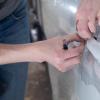It Begins at the Scene: 4 Steps to Protecting Your Legal Rights After a Trucking Accident
As a trucker, you are held to a much higher standard of driving than the average car on the road. From your breaks, to your logged time, to your time behind the wheel, you will be required to follow a strict set of procedures put in place to prevent accidents caused by negligence, exhaustion, or stress.
Unfortunately, even with careful driving and following the rules, accidents can and do happen. Be it bad driving conditions, other drivers, or another issue that crops up to cause an accident, you need to be prepared to deal with the aftermath of any accident that you are involved in.
Hopefully, you will never have to experience a trucking accident with your semi, but it’s always best to have a clear set of procedures ready to follow if it does happen.
To that end, here are the steps you must take if you are involved in an accident:
- Call the police
No matter what, you should always contact the police after a car accident. Whether it’s an accident with a personal or commercial vehicle, contacting the authorities is important for a number of reasons. For one, the police can secure the scene, making it safer for you and anyone else involved in the accident. They will also bring paramedics, which is important even if it seems like no one is seriously injured. Some injuries, especially those to the spine, or brain injuries like concussions, may require a trained eye to spot.
The police will also write up a full, detailed report of the accident and interview you, any witnesses, and anyone else involved in the accident. This report can become invaluable later when insurance and attorneys come into play.
- Call your company
Whatever trucking company you work for should be kept abreast of the situation. As soon as the authorities are on hand, it’s time to call your company and let them know that you’ve been involved in an accident and ask for steps they would like you to take from here on out. Some companies will prefer to contact insurance on your behalf, while others will request things like photos or your log book.
If you’re an independent contractor, you will want to contact your insurance company and inform them of the accident, and then the company or client you’re shipping for, which brings us to our following point.
- Check the cargo
Whether you’re moving dangerous goods or not, you’ll want to check on your cargo to see how it fared in the accident. Insurance will need to know exactly what occurred to the cargo to damage it during the accident and the authorities will need to be informed if you are carrying any dangerous, flammable, or environmentally hazardous materials. If you notice that the cargo has been damaged, you should photograph it and inform your trucking company and/or your insurance company.
- Stay at the scene
Even if you are uninjured, your cargo is secure, and everyone seems uninjured, you should stay at the scene until the authorities dismiss you. Insurance companies will be looking closely at how you behave after the accident and can use you departing early as an admission of guilt or an attempt to conceal information.
More to Read:
Previous Posts:



